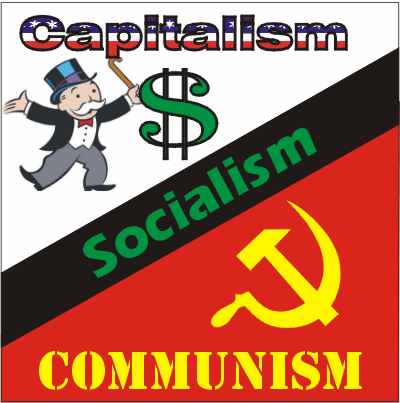
The Civics and Economics course at Leesville is an engaging class that teaches students the basic principles of the American political structure and economy on all levels. As the semester winds down for Leesville students, the course has shifted towards a focus on macroeconomics, comparing the three main economic principles of capitalism, socialism, and communism.
On a certain Tuesday in the classroom, a movie plays about an American settlement isolated within the farmlands of Louisa County, Virginia. This, however, is no ordinary farmland. This is the Twin Oaks Community, a communist ecovillage that specializes in hammock making and, above all else, property and profit sharing.
Some students in Ms. Scioli’s third period class align with the ideas expressed through this unique lifestyle. “The ideas expressed in communism are something like a utopia, and who wouldn’t want to live in a utopia?” said a student who chose to remain anonymous. “Though it may not be proven to work on a large scale, on a smaller scale it flourishes.” they said.
Many students in the classroom align more closely to the socialist ideals presented in another documentary, Where to Invade Next. Starring Michael Moore, a prominent left wing filmmaker, the movie explores the societal constructs of developed European nations. In Finland, school hours are reduced to four hours a day. In Italy, eight weeks of paid vacation per year are provided as well as six months of paid maternity leave. Factory workers in Germany have an hour of designated lunch time, and some serve as full time members on the board of directors.
How are these benefits doled out to the people? It’s all rooted in the higher taxes and equality of socialism, Moore explains.
“People in a socialist society seem to be more relaxed and happier,” said another anonymous student in Scioli’s class. “People aren’t super concerned with accumulating wealth in exchange for these benefits,” they said.
Another documentary by John Stossel explores the American economic way of capitalism, in which corporations endure little intervention from government regarding the products that they choose to sell. “Capitalism allows people to move up in life more easily, based on how hard they work and how dedicated they are in their fields. This makes it a bigger incentive to improve your work,” said Kevin Zheng, another student in Scioli’s class.
Each economic system has its own respective positives and drawbacks. Through these healthy and engaging conversations in Civics and Economics, students can understand their classmates points of view and form their own opinions on the issues that matter in society today.